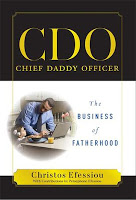The habits that parents help their children establish while growing up carry over into adult life. Take money, for example.
Kids who are given whatever they ask for don’t appreciate what it takes to work for something you really want. They can easily develop an “entitlement” mindset with adverse consequences later.
Imagine the difference if instead, they learn that when you want something, you have to put forth effort to make it a reality. It doesn’t magically appear out of thin air.
When our daughter Alison turned 13, we decided to give her a clothing allowance. Each month she knew she would receive a set amount of money that she could spend on clothes. And by the way, it wasn’t a generous amount.
She could blow it all on a single blouse or pair of shoes, or she could take advantage of sales, discount coupons and consignment shops to stretch her dollars.
She also understood that she couldn't come back to her dad and me to make up the difference if there were a big-ticket item she wanted to purchase. No, she had to find a way to earn the money. Or she had to save up the allowance over a number of months.
She quickly learned it was fruitless to ask us for more. We’d simply require her to figure out for herself how she was going to buy something she claimed to desperately want.
Yes, at times she complained. Her other friends didn't have these kinds of restrictions, their parents were more lenient, etc. But this occasional whining didn't faze us. We firmly believed that learning how money works in the real world was a critical life skill we needed to teach her.
During her junior year in high school, the French teacher decided to set up a trip to France for the students. Alison was beside herself with excitement about the prospect of visiting that country. When she presented us with the total price for the trip, we agreed that she could go if she paid for half the expenses.
After an initial protest, she started figuring out ways to earn the money. And she did. I’m convinced she enjoyed the trip all the more because she had to invest her own money in the adventure.
It’s been a decade since Alison was a teenager, and these thrifty habits have continued into her adult life.
She and her husband love to travel, and Alison approaches each trip as a personal challenge to combine economy with luxury.
Recently they went to New York City, stayed at the Waldorf Astoria and enjoyed many fabulous meals. But it didn't cost them a fortune because she had applied her finely-honed sleuthing skills to uncover terrific deals online.
Whether it’s clothing, home furnishings or food, she seeks out bargains. You’ll rarely see her pay full price for anything, and she’s taught her dad and me some great tips for shopping at consignment shops and thrift stores.
Her personal money management skills influenced her career choice, too. She works in the financial investment industry, helping people make the most of their money as they plan for the future. She absolutely loves her work and feels a deep sense of satisfaction in guiding others to think about their long-term financial needs.
As parents, one of our most important jobs is to prepare our children to become independent, responsible adults. When they learn how to manage money, they acquire other strengths they’ll need for life, such as self-discipline, patience and effort.
Showing posts with label Raising Children. Show all posts
Showing posts with label Raising Children. Show all posts
Tuesday, March 11, 2014
Friday, October 5, 2012
Chief Daddy Officer – Lessons on Parenting from a Wise CEO
I used to read a lot of parenting books when my daughter Alison was growing up, especially during those challenging pre-teen and teen years. I wish I’d had CDO Chief Daddy Officer: The Business of Fatherhood back then. This book speaks to mothers and fathers alike.
Author Chris Efessiou takes a unique approach to the topic of parenting. A very successful business executive, throughout the book Chris explains how he applied his business skills to the raising of his daughter. Anyone who’s been in a work environment will immediately relate to the analogies he uses. And you’ll probably shake your head wondering, “Why didn’t I see this connection before?”
One of the major themes is to take a strategic approach. Obviously, in running a company, you have to think about the big picture – where you want your business to go – in addition to attending to day-to-day operations. But what does that mean for a parent dealing with daily crises and challenges that involve your children?
It means being guided by questions like, “What do I want to come out of this?” and “What kind of adult do I want this child to become?”
When you take time to consider your answers to those questions, your response in a given situation can shift from anger to calm because you think about the long-term consequences and what you’re teaching your child through your reactions. If you over-react, you lose control over yourself and you risk losing the respect of your child. But if you maintain your composure and respond thoughtfully, you model behavior that you want your son or daughter to adopt and carry into adulthood.
Because, as Chris points out, your ultimate goal as a parent is to:
Instead, you’ll have a plan for your child’s character and growth. You'll...
Chris’ devotion and love for his daughter shine through on every page. The retelling of their interactions will make you smile, nod in agreement and wipe away tears. He has a unique gift for writing that stimulates your thinking and touches your heart.
If you read and apply what you learn from Chris Efessiou, you will not only introduce solid citizens to our society, you’ll establish a deep, rewarding relationship with your children that lasts a lifetime.
Chris Efessiou also has a weekly radio show, Straight Up with Chris, Real Talk on Business & Parenthood, where he interviews other experts about the topics addressed in his book. Also highly recommended!
Author Chris Efessiou takes a unique approach to the topic of parenting. A very successful business executive, throughout the book Chris explains how he applied his business skills to the raising of his daughter. Anyone who’s been in a work environment will immediately relate to the analogies he uses. And you’ll probably shake your head wondering, “Why didn’t I see this connection before?”
One of the major themes is to take a strategic approach. Obviously, in running a company, you have to think about the big picture – where you want your business to go – in addition to attending to day-to-day operations. But what does that mean for a parent dealing with daily crises and challenges that involve your children?
It means being guided by questions like, “What do I want to come out of this?” and “What kind of adult do I want this child to become?”
When you take time to consider your answers to those questions, your response in a given situation can shift from anger to calm because you think about the long-term consequences and what you’re teaching your child through your reactions. If you over-react, you lose control over yourself and you risk losing the respect of your child. But if you maintain your composure and respond thoughtfully, you model behavior that you want your son or daughter to adopt and carry into adulthood.
Because, as Chris points out, your ultimate goal as a parent is to:
“Raise a dependable, conscientious, reliable, trustworthy, sensible, self-sufficient,
un-entitled, mature adult.”
Think about the responsibility those words carry for a parent! What does it take to produce the kind of grown-up who possesses all those desirable qualities? If you’re serious about achieving that outcome, you’ll think twice before handing over “easy money” or giving in to persistent requests and demands that are not in their best interest.un-entitled, mature adult.”
Instead, you’ll have a plan for your child’s character and growth. You'll...
- Give thought to situations you want to expose her to that will help her develop compassion and empathy.
- Teach him about money management so he knows how to handle his finances and stay out of debt.
- Ask meaningful questions that draw out thoughts, concerns and ideas, instead of asking trivial questions that go nowhere, such as “How was your day?”
- Make time to be there physically and emotionally so she knows she can count on you.
- Offer encouragement and praise when his behavior is consistent with your plan.
Chris’ devotion and love for his daughter shine through on every page. The retelling of their interactions will make you smile, nod in agreement and wipe away tears. He has a unique gift for writing that stimulates your thinking and touches your heart.
If you read and apply what you learn from Chris Efessiou, you will not only introduce solid citizens to our society, you’ll establish a deep, rewarding relationship with your children that lasts a lifetime.
“Think about the parent that you want to be and decide what you are willing to sacrifice to become that person.”
- Chris Efessiou
- Chris Efessiou
Chris Efessiou also has a weekly radio show, Straight Up with Chris, Real Talk on Business & Parenthood, where he interviews other experts about the topics addressed in his book. Also highly recommended!
Saturday, October 1, 2011
Teaching Financial Responsibility to Teens
When Alison was in high school and had just started driving, she announced to her dad and me one night that she thought she should have her own credit card.
Us: “Why do you think you need a credit card at age 17?”
Alison: “Because Ashley’s parents just got her one so she could fuel up her car and not worry about having to carry a lot of cash.”
That simple statement opened the door to talk about credit cards and who should be paying for the gas. We had a lengthy conversation about money, spending and financial responsibility.
In the end, we decided that a credit card was not in her (or our) best interest at the moment. Instead, setting up her own checking account with a debit card seemed a more appropriate solution.
It was one of the best decisions we ever made as parents.
Alison checked around and found a bank that would let her open an account in her name only, so she could operate it independent of us. The debit card prevented her from spending more money than she had in the account, though a couple of times she experienced the pain of overdraft fines. She quickly learned to monitor her balance to avoid that unnecessary expense in the future.
Using a debit card was the perfect introduction to money management. She learned to live within her means. She couldn’t buy something on impulse unless she was sure she had the money on hand to pay for it.
When she left for college, Alison still had that bank account and debit card system. She didn’t apply for her first credit card until her second year, when she had regular income from a part-time job. She faithfully paid off the balance each month to avoid paying interest.
I remember her telling us that she chose to keep a $500 limit, even when the credit card company offered to let her increase it to $1,500. She didn’t want to be tempted to put charges on the card that she couldn’t pay on the due date. We were very proud of her and affirmed her wise decision.
Contrast this with parents who give their kids their own credit card in high school or college. If Mom and Dad always pick up the tab, the young person doesn’t make the connection between incurring expenses and having to come up with the money to pay the bill.
These actions can have consequences that last a lifetime. If young people don’t learn how to manage money at an early age, they enter adulthood without one of the most important life skills they’ll ever need.
A widespread problem
I’ll never forget the parent orientation session my husband Lee and I attended at UVA the summer before Alison began her first year.
One of the professors told us that every fall, the first year students are gathered in a large room. He then described what happens when they’re asked to respond to these three questions.
Raise your hand if your parents have talked with you about SEX. Most hands go up.
Raise your hand if your parents have talked with you about DRINKING AND DRUGS. Again, most hands go up.
Raise your hand if your parents have talked with you about MONEY and MONEY MANAGEMENT. Very few hands go up.
Lee and I had invested far more time over the years talking with Alison about money than the other subjects, so we were surprised that we were in the minority.
All these topics are obviously very important to address with children as they’re growing up.
If you have kids, no matter what age they are, you are the primary person responsible for teaching them how to handle money.
What steps are you taking to help them learn a vital skill they will need every day of their adult life?
Us: “Why do you think you need a credit card at age 17?”
Alison: “Because Ashley’s parents just got her one so she could fuel up her car and not worry about having to carry a lot of cash.”
That simple statement opened the door to talk about credit cards and who should be paying for the gas. We had a lengthy conversation about money, spending and financial responsibility.
In the end, we decided that a credit card was not in her (or our) best interest at the moment. Instead, setting up her own checking account with a debit card seemed a more appropriate solution.
It was one of the best decisions we ever made as parents.
Alison checked around and found a bank that would let her open an account in her name only, so she could operate it independent of us. The debit card prevented her from spending more money than she had in the account, though a couple of times she experienced the pain of overdraft fines. She quickly learned to monitor her balance to avoid that unnecessary expense in the future.
Using a debit card was the perfect introduction to money management. She learned to live within her means. She couldn’t buy something on impulse unless she was sure she had the money on hand to pay for it.
When she left for college, Alison still had that bank account and debit card system. She didn’t apply for her first credit card until her second year, when she had regular income from a part-time job. She faithfully paid off the balance each month to avoid paying interest.
I remember her telling us that she chose to keep a $500 limit, even when the credit card company offered to let her increase it to $1,500. She didn’t want to be tempted to put charges on the card that she couldn’t pay on the due date. We were very proud of her and affirmed her wise decision.
Contrast this with parents who give their kids their own credit card in high school or college. If Mom and Dad always pick up the tab, the young person doesn’t make the connection between incurring expenses and having to come up with the money to pay the bill.
These actions can have consequences that last a lifetime. If young people don’t learn how to manage money at an early age, they enter adulthood without one of the most important life skills they’ll ever need.
A widespread problem
I’ll never forget the parent orientation session my husband Lee and I attended at UVA the summer before Alison began her first year.
One of the professors told us that every fall, the first year students are gathered in a large room. He then described what happens when they’re asked to respond to these three questions.
Raise your hand if your parents have talked with you about SEX. Most hands go up.
Raise your hand if your parents have talked with you about DRINKING AND DRUGS. Again, most hands go up.
Raise your hand if your parents have talked with you about MONEY and MONEY MANAGEMENT. Very few hands go up.
Lee and I had invested far more time over the years talking with Alison about money than the other subjects, so we were surprised that we were in the minority.
All these topics are obviously very important to address with children as they’re growing up.
If you have kids, no matter what age they are, you are the primary person responsible for teaching them how to handle money.
What steps are you taking to help them learn a vital skill they will need every day of their adult life?
Subscribe to: Posts (Atom)







